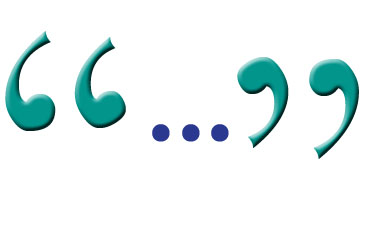If your mother was anything like mine, she dispensed tons of advice: Sit up straight … Don’t go outside with a wet head or you’ll catch a cold … and NEVER stop at a rest area after dark.
Well, I slouch all the time, frequently go out with wet hair and recently stopped at Sunset Point at midnight (under the Boyfriend’s watchful eye) — and the world didn’t stop spinning. My posture may suffer, but I didn’t catch my death of cold or get myself murdered.
So Mom doesn’t always know best.
She was right about one thing, though: You can catch more flies with honey than with vinegar.
As a reporter, my best interviews happen when I approach them like I’m sitting down to chat with a friend. Interview subjects share more — and give better quotes — if you set a friendly tone and bond over something you have in common.
Interviewing characters is similar. I like to sit down with my laptop, usually in a coffee shop, and make myself comfortable. Then we chat.
Of course, your characters are in your head, so you control the response. However, if your characters are anything like mine, they’re mouthy at best, uncooperative at worst.
To get the conversational ball rolling, I lob them a few softball questions first, questions like How’d you get your nickname? Where do you live? Any roommates?
With the niceties out of the way (and the creative juices flowing), you can get serious. If you’re lucky, your characters’ responses tell you something you didn’t know or didn’t consider important … something you can use to enrich your story.
For example, when I sat down with the hero in a half-finished, still-untitled WIP, I discovered he’s a bit of a stuffed shirt who likes to please everyone but himself.
So, Drew, tell me about your childhood.
(shrugs) There’s not much to tell. I grew up in a stable home with a mother and father who both loved me to distraction. I’m the middle child, with an older sister and younger brother.
I understand they’re both screw-ups.
Denise is a successful attorney. I’d hardly call that a screw-up. Of course, Mom isn’t happy that she’s decided to get herself artificially inseminated.
How do you feel about that decision?
It’s not my decision to make. She is 32 years old and still without a husband or any prospect of one. I say if she thinks the sperm bank is the best way to achieve her goal of having a family, she should go for it. (Hmm … I sense a story there! 😉 ) Just don’t tell my Mom I said so.
Why not?
I like being “the good child.” If Mom heard me siding with Denise, I might lose my standing.
What about your brother?
Dan? He’s no threat. He can’t hold a job for more than a few months at a time. He just lost another one, for boinking some girl in the copier room.
Let’s explore your need to be “the good child.”
Now you sound like my shrink.
You have a shrink?
No, but if I did, he’d surely want to “explore my need to be ‘the good child.’”
Well?
Pass. Ask me another question.
No, I think we’re onto something here. We’re going to continue exploring this topic, if you don’t mind.
(scowls) I like making people happy. Is that a crime?
Not at all — unless, of course, by making someone else happy you’re not pleasing yourself, too.
You can’t please someone else and yourself at the same time, genius.
Of course you can, if you both have similar goals, needs and desires.
And how many truly compatible people do you find in this world? I’m willing to bet the answer is “not too damn many.”
It only takes one, Drew.
Now you’re talking romance, huh?
You got it, genius.
So grab a cup of coffee, make yourself comfortable and have a heart-to-heart with your hero/heroine. What you find out just might surprise you — and it’ll probably improve your WIP.
 Scrolling through my Feedly feed yesterday, I came to Copyblogger’s interview with bestselling author Hugh Howey, who wrote and self-published Wool.
Scrolling through my Feedly feed yesterday, I came to Copyblogger’s interview with bestselling author Hugh Howey, who wrote and self-published Wool.
